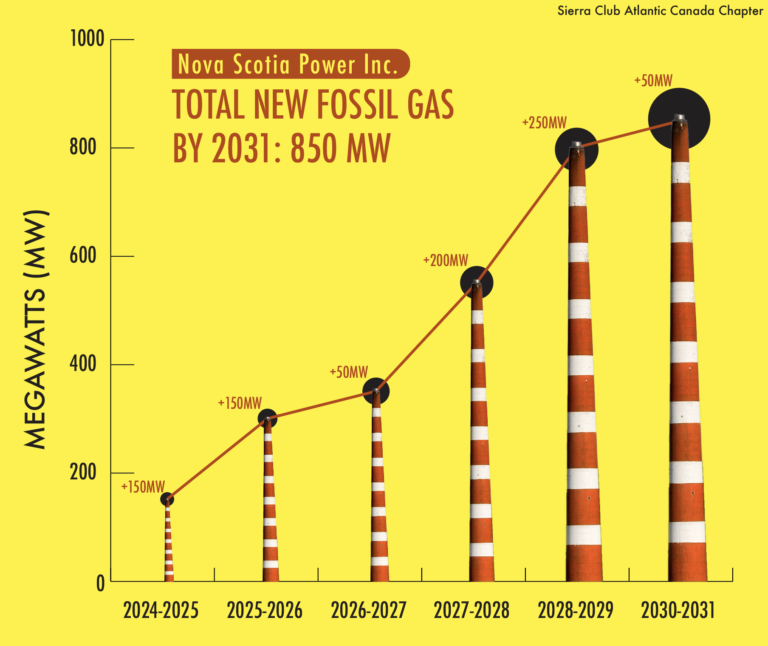For immediate release: May 26, 2022
It’s time to challenge Emera’s monopoly
Nova Scotians can’t afford to pay the price for another year of record shareholder profits or more unnecessary delays in transitioning to clean renewable energy
Halifax/Kjipuktuk – At Emera’s annual shareholders’ meeting in Halifax today, CEO Scott Balfour will have lots to brag about: Emera’s profits are better than ever1 and shareholder returns averaged an impressive 11.5% over 10 years, according to the company’s latest annual report.2 Balfour got a 6% raise, too, earning $8.28 million in total compensation in 2021.
But what’s good for shareholders (and Scott Balfour) isn’t necessarily good for Nova Scotia customers, or for those who rely on Emera’s companies in the US or the Caribbean to supply their electricity.
“People are having to choose between heating and cooling their homes or buying groceries,” says Tynette Deveaux, with Sierra Club’s Beyond Coal Atlantic campaign. “Yet Emera’s flagship company, Nova Scotia Power, is threatening to raise residential rates by 10 percent. How is that okay?”
Nova Scotia’s Utility and Review Board will hear Nova Scotia Power’s general rate application (GRA) in September.
Meanwhile, Nova Scotians are on the hook for $1.8 billion to pay for the Maritime Link, which still isn’t delivering the full block of hydro power from Muskrat Falls that was promised to Nova Scotia Power customers.3
“We could have built a lot of wind and solar farms in Nova Scotia for $1.8 billion,” says Gretchen Fitzgerald, National Programs Director for Sierra Club Canada Foundation. “Apart from a few renewable energy pilot projects that Nova Scotia Power has undertaken recently, the corporation is basically jogging on the spot when it comes to transitioning to clean renewable energy,” says Fitzgerald.
As it turns out, Emera is setting the target for renewables much lower than the Nova Scotia government. In its 2021 annual report, Emera states it will “support Nova Scotia Power in meeting its target of 60 percent renewable energy by 2030.”4 Nova Scotia’s Environmental Goals and Climate Change Reduction Act, however, states that 80 percent of the province’s electricity must be generated by renewables by the end of this decade.5
“Sooner or later we’re going to have to face the fact that it’s not in Emera’s or Nova Scotia Power’s self-interest to speed up the transition to renewable energy,” says Deveaux. “Emera shareholders stand to profit from stretching out the life of coal plants and building new natural (fossil) gas plants to replace them. Our interests simply don’t align. It’s time to break Nova Scotia Power’s monopoly. The province should be looking to buy back and diversify the grid. Local communities and smaller innovative companies have proven they can lead the transition to clean renewable energy much better than Emera or Nova Scotia Power.6 Let’s help them do it.”
–30–
Media Contacts:
Tynette Deveaux, Beyond Coal Campaign
Sierra Club Canada, Atlantic Chapter
Gretchen Fitzgerald, National Programs Director
Sierra Club Canada
Footnotes:
- Emera 2021 Annual Report, 2021 Financial Highlights
- Emera 2021 Annual Report, p. 5
- According to a new report, it may be a year or more before Muskrat Falls is even fully operational.
- Emera 2021 Annual Report, p. 7
- Bill 57 – Environmental Goals and Climate Change Reduction Act – RA
- Sierra Club Beyond Climate Promises: Energy Democracy




